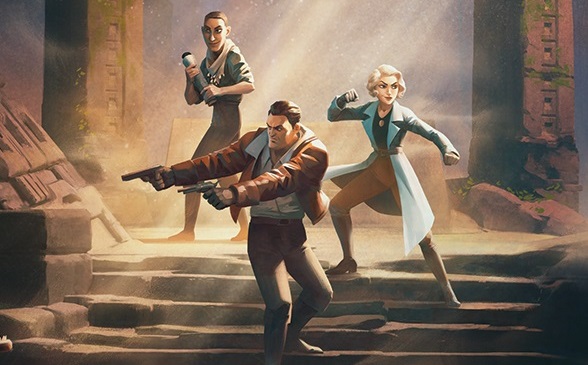
The first time you send femme fatale Ingrid charging through a line of goons in The Lamplighters League, you feel like a superhero. She has a backhand like a pneumatic drill, and can smack just about anything unconscious with a flick of her wrist. Wait for a few gas-masked guards to bunch together, ease her into position, and knock them down in an instant. When the fighting starts proper, the kicks will come flying too. That is, of course, if she's standing upright, and not lying down for a snooze as I often find her.
It's not her fault. On my previous mission to sabotage the enigmatic Banished Court in its evil plan to claim a magical, world-ending tower, I pushed Ingrid to her limit. With one too many bullets flying past her head and sabers swiping in her face, she had a somewhat understandable nervous breakdown. Her reward: A random draw from a magical deck of fatalistic playing cards that alternately helps and hinders your band of pulpy adventurers.
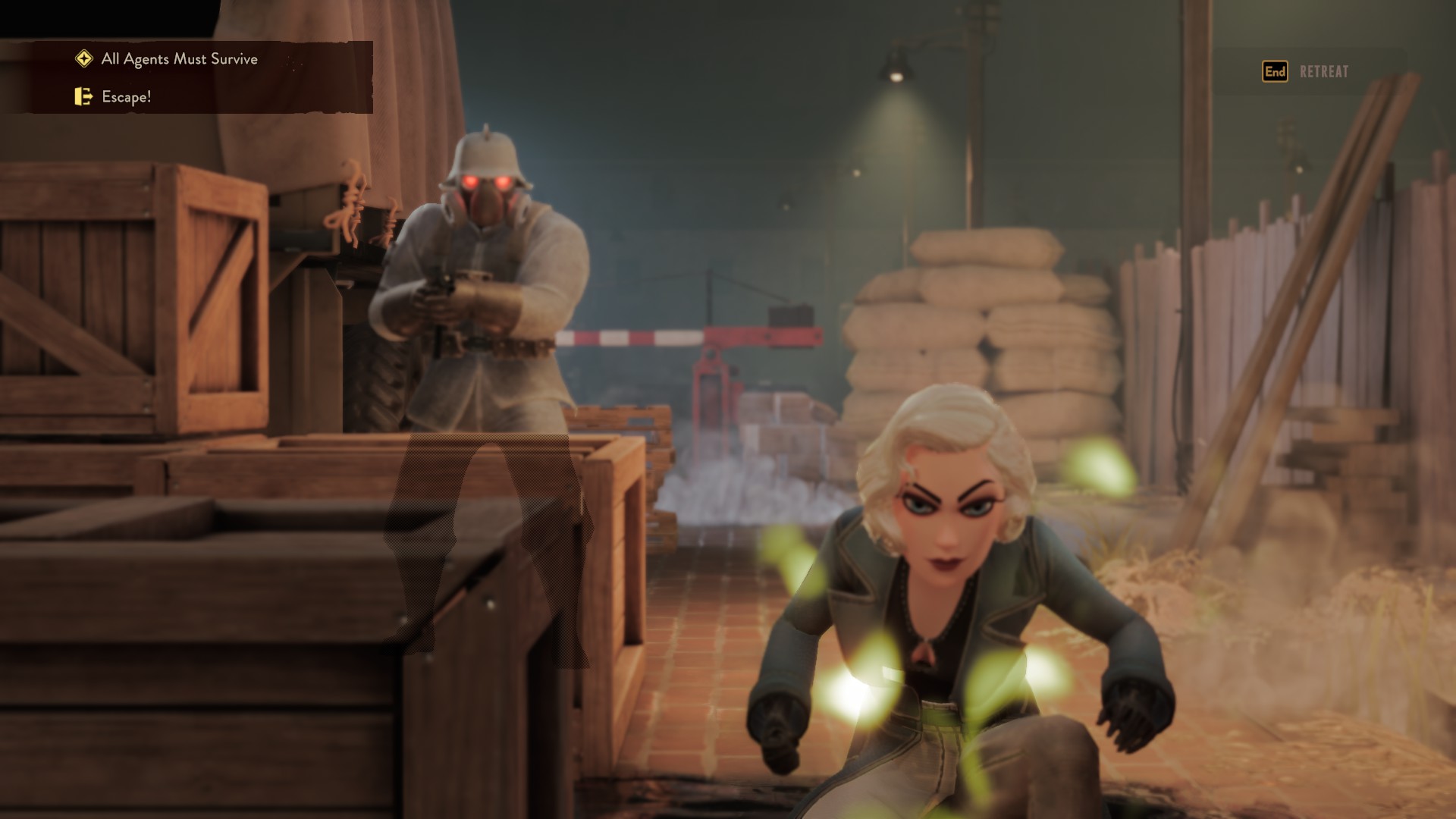
In this case, she's saddled with the semi-permanent chance to be knocked down to the ground at the start of every turn. Such clumsy footwork would be trouble at the best of times, but doubly so when it gets the better of her just as three self-reviving ancient Egyptian mummies spring out of their sarcophaguses—and then, just to lay on the hurt, start intermittently bursting into balls of fire. What luck she has.
Sneak attack
It later occurs to me that the whole situation could probably have been avoided. Among the usual staples of the turn-based tactics genre—character-assigned action points that are spent on moving and attacking, protective cover around which you position your squad, and hit probabilities—The Lamplighters League is a stealth game. Before any turn-taking begins, you're free to roam your squad about the map in real-time, evading enemy view cones to explore alternative routes forward, discover secrets, and even the odds before things inevitably turn sour.
The Gentleman Djinn can perform silent takedowns on unsuspecting enemies if he's close enough, and Saboteurs like hardman veteran Eddie can pick locks and chuck electrifying mines about the place. You have a limited number of these specials—Eddie doesn't have bottomless pockets, after all, and I guess Ol' Djinn's arms just get tired—so you have to use them sparingly. Or forget the stealth thing altogether.
Slinking around enemy patrols is often slow going, and the environmental hazards you can use to your advantage have a certain pre-prepared quality to them. With only a few real-time abilities to call upon, the opening levels of The Lamplighters League I played didn't reach nearly the playful, immersive sim-esque heights of something like Shadow Gambit: The Cursed Crew. At one moment, having made my way to a rooftop generator I'd been tasked with destroying, I found I had no option but to go loud, undoing much of the good stealth work I'd already put in and alerting many of the enemies I'd evaded up to that point.
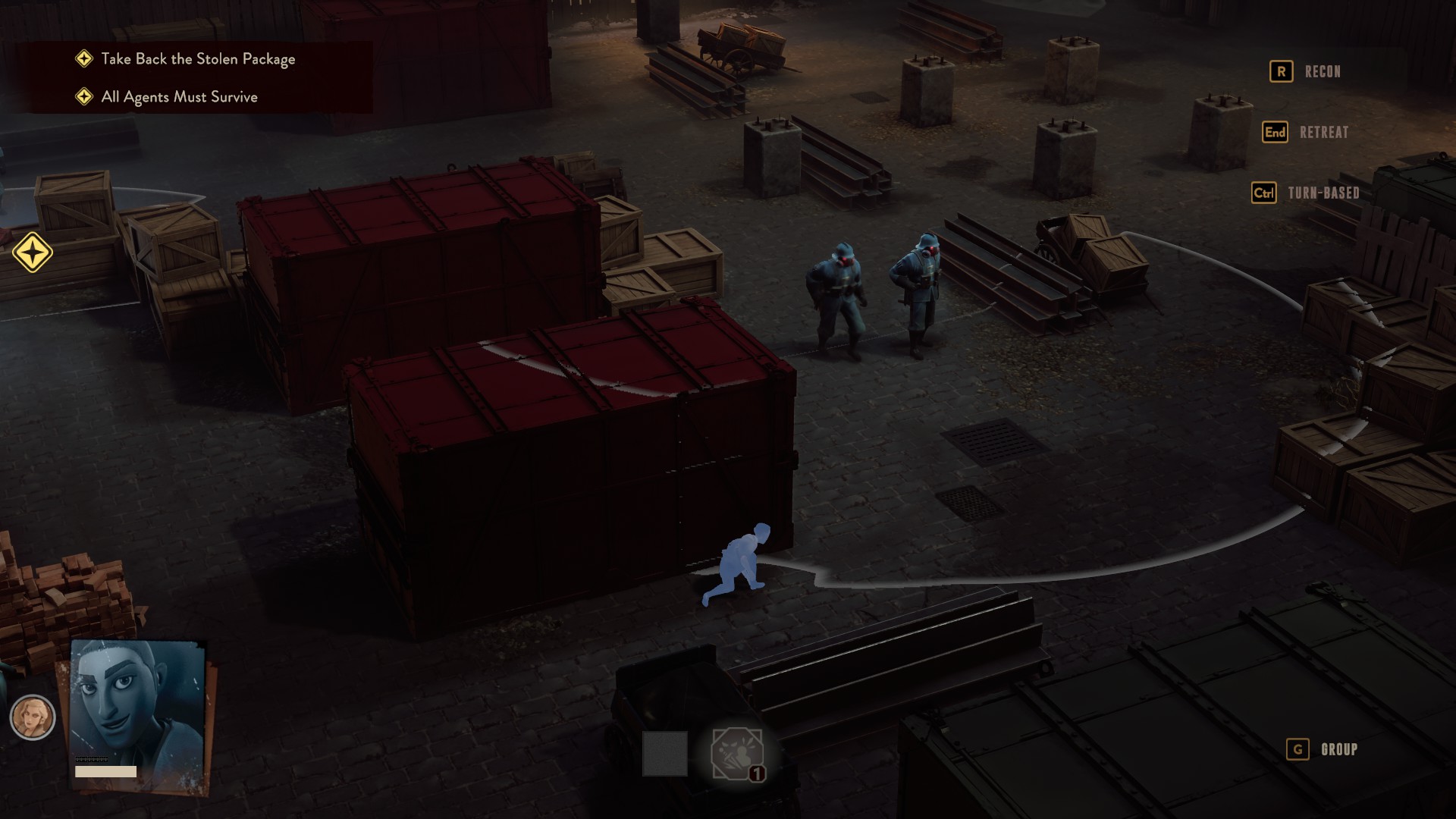
When the fighting starts, it essentially resolves to shrewdly synergizing various buffs, debuffs, and special abilities to swiftly cut through overwhelming odds. When an early mission has me rescue occult assassin Célestine, who brings with her a whole bunch of poison knives and a comparative amount of brooding, I'm at first a little put off by her melee-focused skills. But then I discover she can temporarily turn opposing forces to my side and curse enemies, exacerbating their stress meters so they're likely to turn tail and flee. Pair that with Eddie's group burst attack that can flush out cowering goons from behind cover into Célestine's line of sight, and you've got a potent henchman-hitting combo.
Tactical entry
If that sounds rather run-of-the-mill by the standards of the genre, well, that's because it is. The Lamplighters League is a grab bag of tried-and-tested ideas: XCOM's pairing of soldierly and supernatural abilities, Jagged Alliance 3's characterful mercs, and Mario + Rabbids' (curse its Nintendo exclusivity) family-friendly looks. All of them are smoothly melded together alongside cinematics that would give the animation boffins at Dreamworks a run for their money.
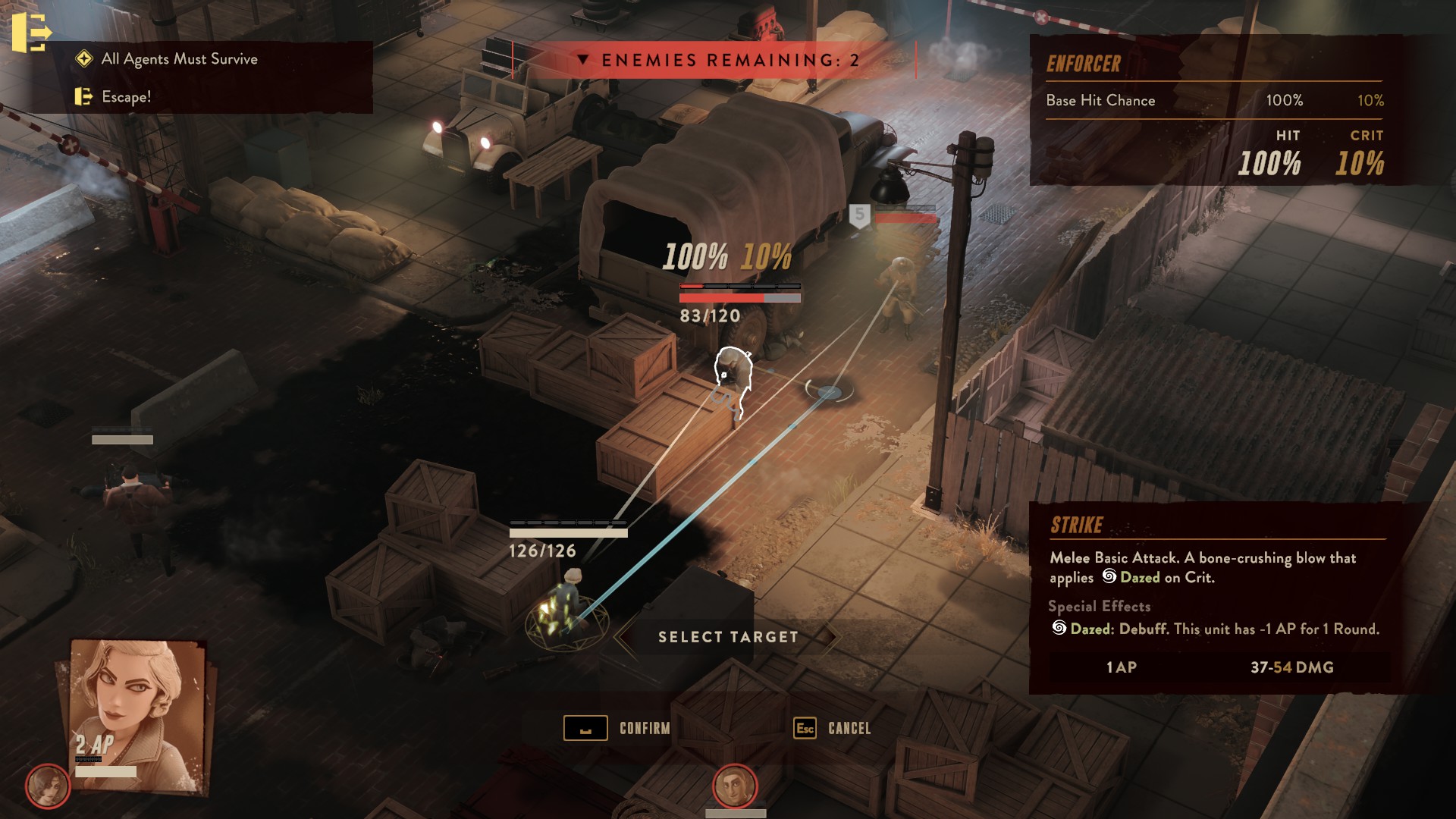
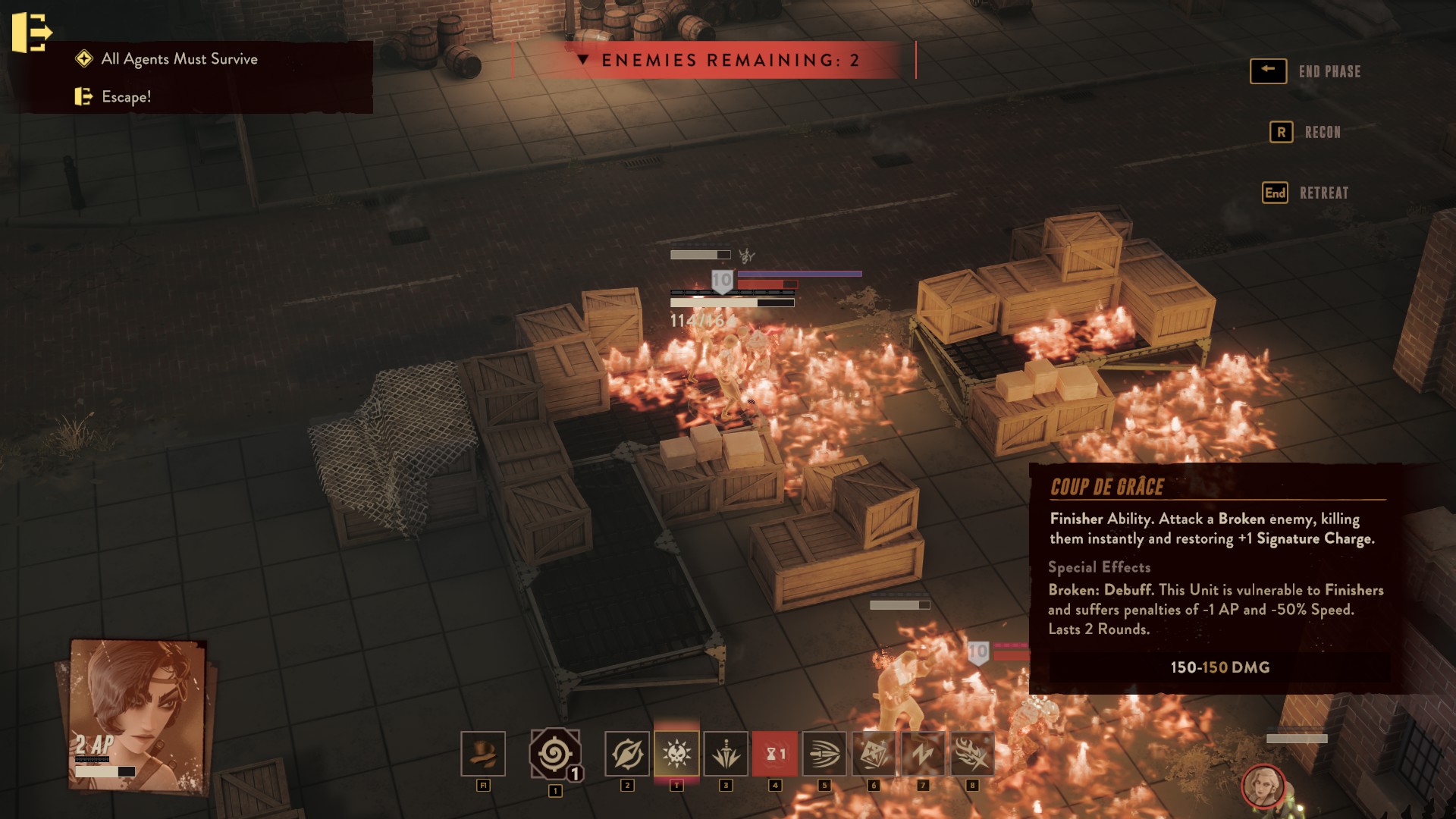

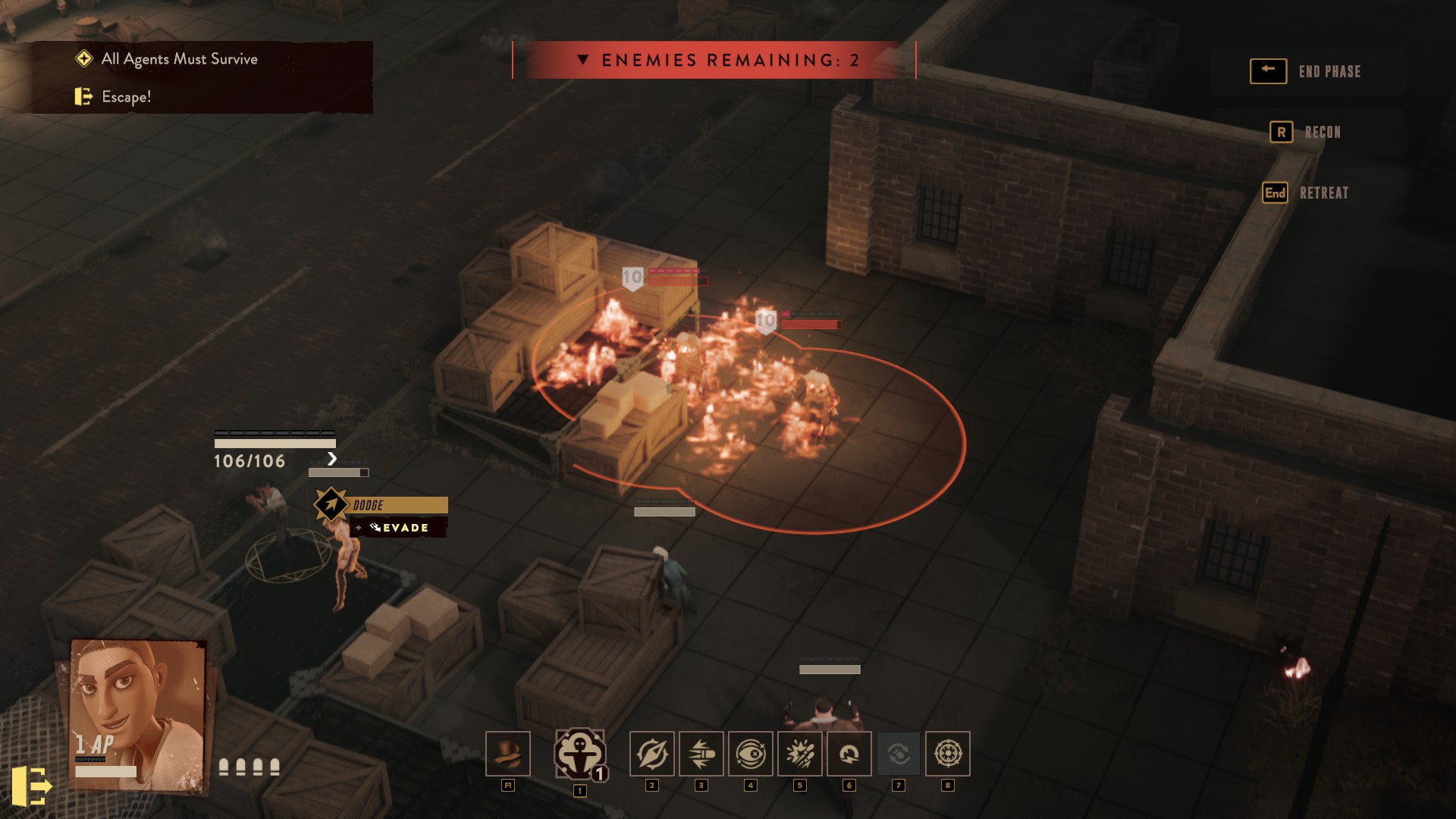
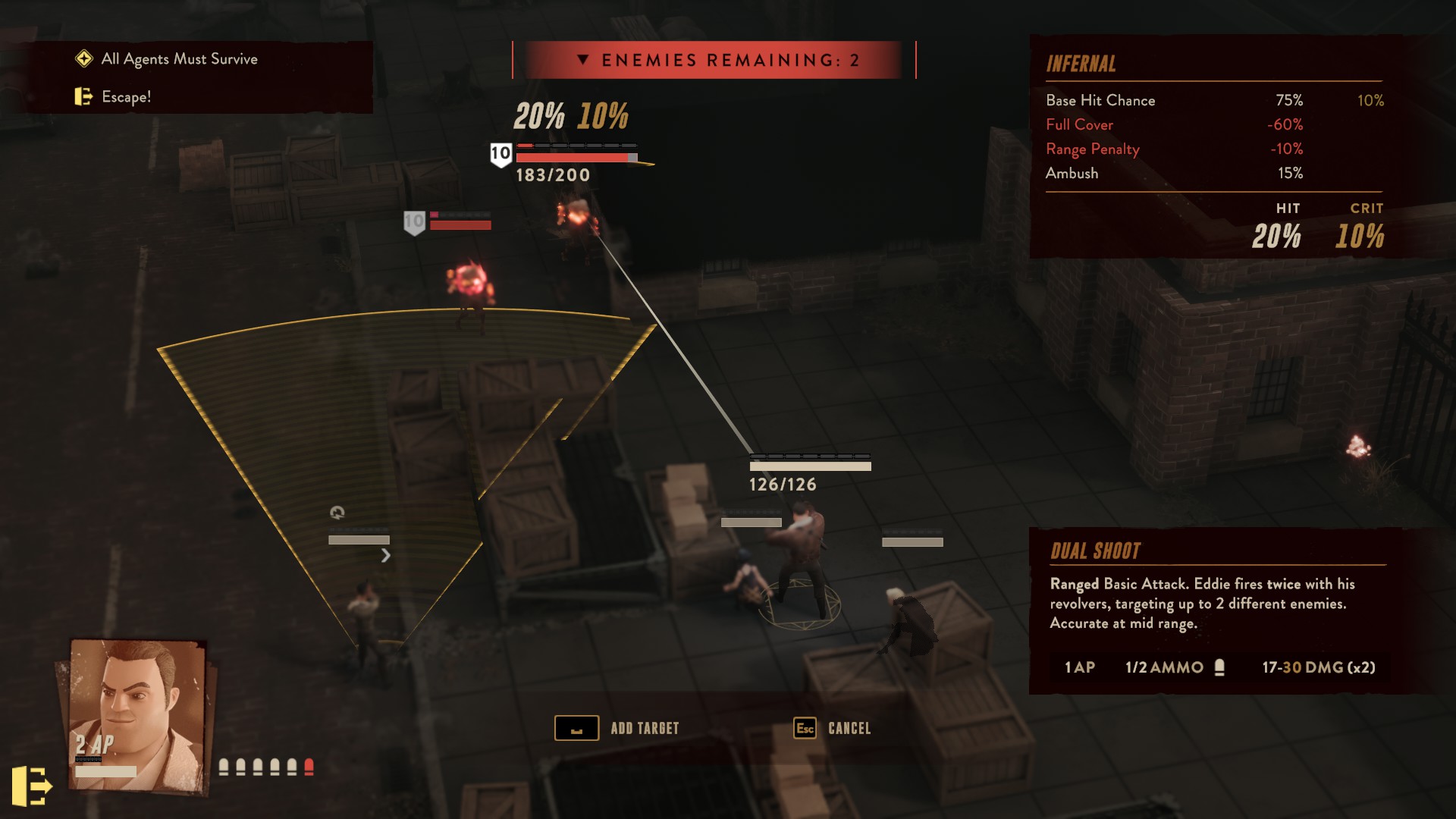
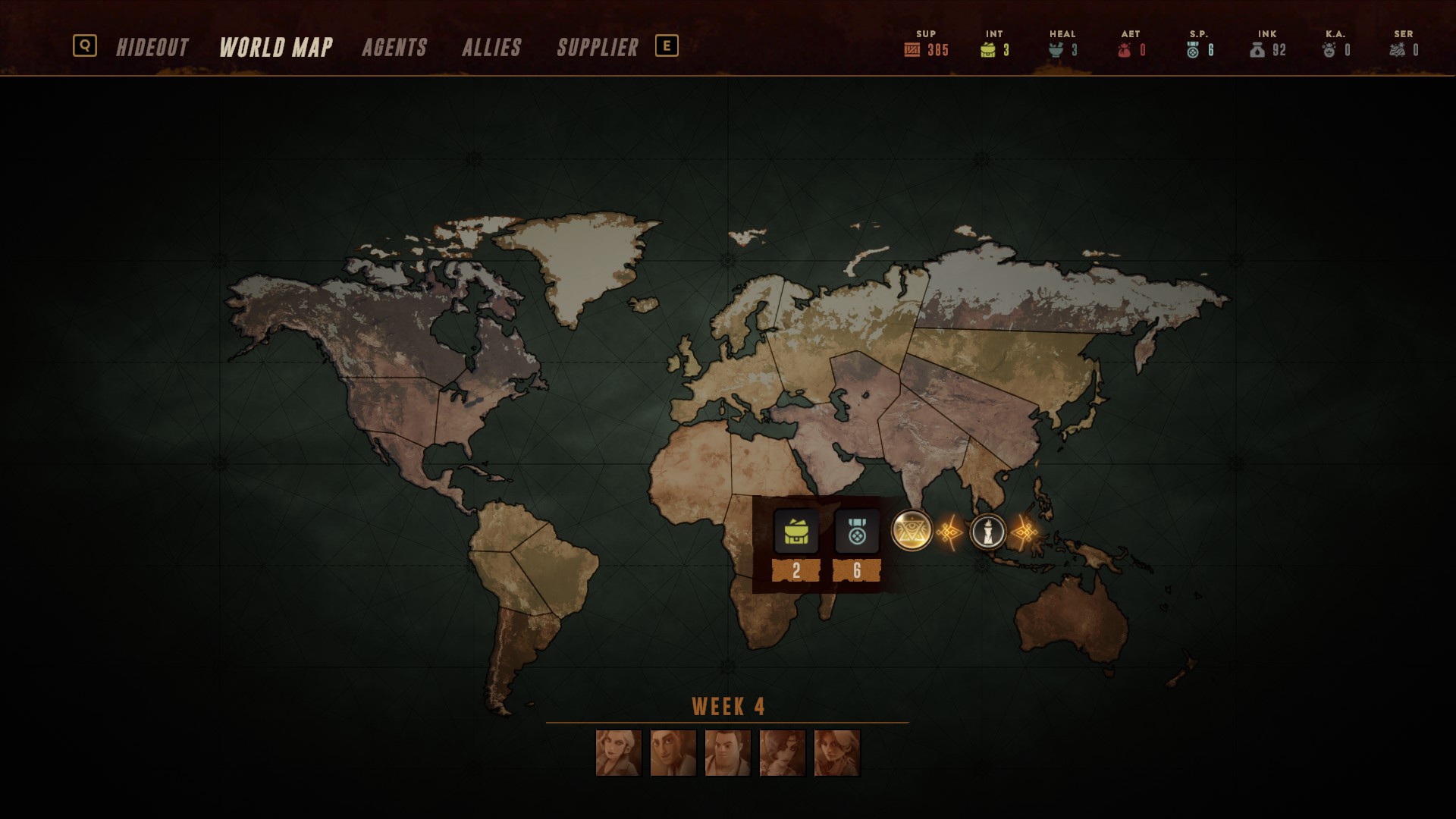
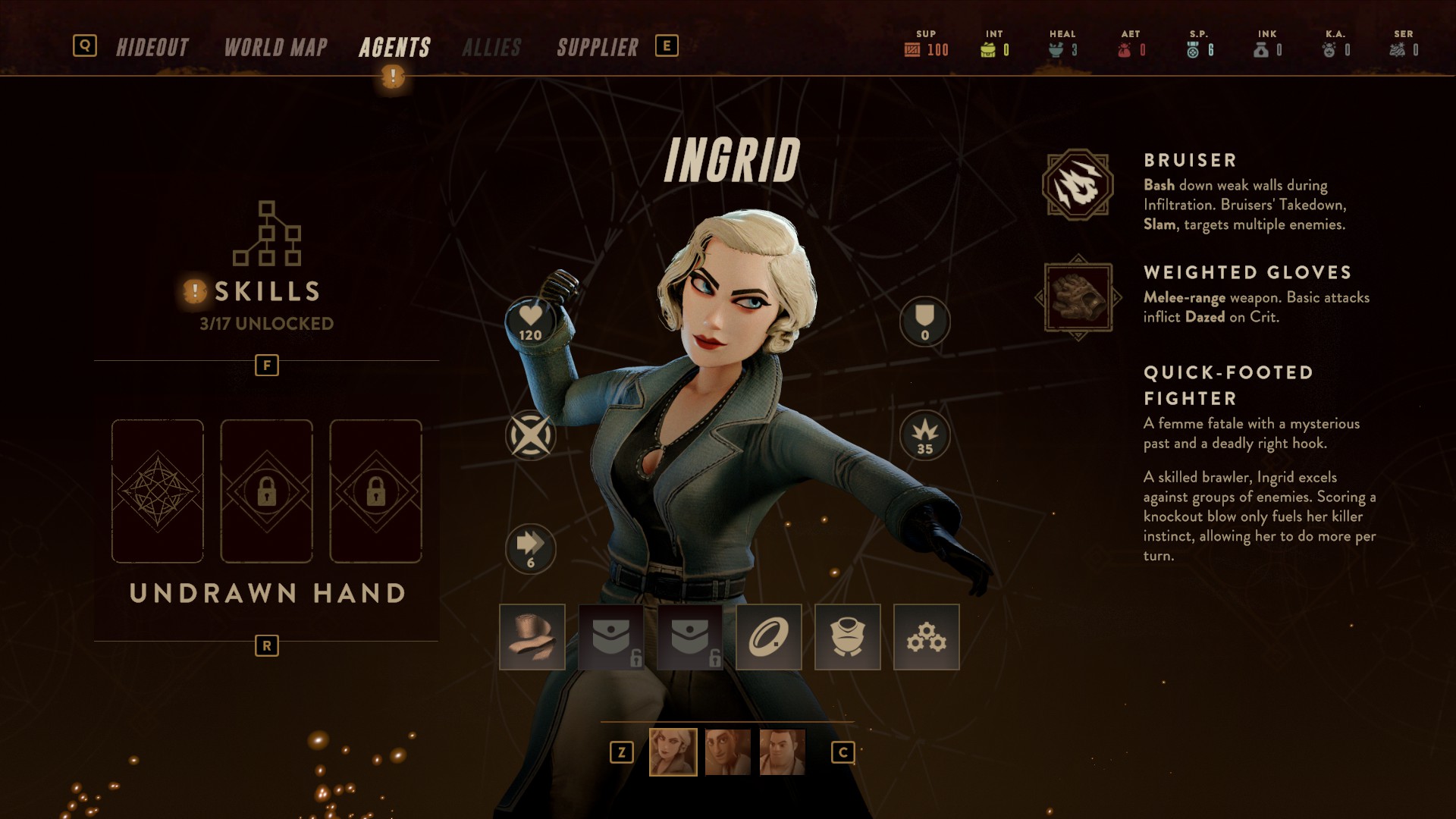
What sets The Lamplighters League apart is its approachability. With no knotty menu systems, and powerful but straightforward ability combos to play with, it's the sort of turn-based tactics game you can dig into without your eyes glazing over at the sight of an overwhelming number of percentage symbols. In a genre that has so often seemed confusingly dense to the uninitiated—due in part to some of developer Harebrained Schemes' own games, like tactical wargame Battletech—The Lamplighters League looks like an attempt to lower the bar of entry.
When I return to Ingrid and the flaming mummies, I turn to the Gentleman Djinn for help. He fires off a round from his pistol, dealing some damage, and I wait for the second to follow. It doesn't come. Oh, yes, that's right. He'd also suffered a nervous break in the previous mission, lumbering him with a high chance to become dazed and ineffective after each attack. When he keels over a few turns later, the mummies' second victim, Célestine offers a few mournful words: “This is how I saw men die on the streets of Montmartre”. Is it really? I'd have thought seeing rows of paramilitary henchmen punched to death before a trio of incendiary zombies arrives to burn everyone alive would be a first. It certainly is for me.







